Trillium Lakelands District School Board (TLDSB) offers both Junior and Senior Kindergarten programs, where our youngest students discover how to learn cooperatively with others. At this age, play is an important way of learning. As children play, they are learning about the world and how it works, about other people, and about themselves.
It is our shared responsibility to ensure that your child’s first school experience will be remembered fondly. We wish you and your child a warm welcome and a future of exciting learning experiences.
To find out which school your child will attend based on your home address, use our School Locator. All contact information for our elementary schools can be found in our School Directory. Each school’s website provides the name of the school’s principal and trustee, school address and contact info, the school’s start and end times, and much more!
In kindergarten classrooms, your child will develop a strong foundation for learning in all areas. They will grow through play-based learning and small group instruction with caring educators. Your child will learn about language and math, engage in healthy physical activities and the arts, and develop socially and emotionally through interaction with their peers and educators who guide them.
The evidence is clear – experiences in early childhood have a major impact on future learning, work, health, and social emotional make-up.
Parents/guardians are encouraged to review the information below prior to the first day of school. If you require this information in an accessible format, contact Communications Services at [email protected].
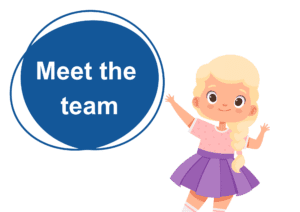 You are your child’s first teacher and will continue to be the source of much of their learning. As your child enters school, we encourage you to speak with their educators, share observations, and ask questions about your child’s progress. Your child’s educators will be assessing your child’s progress frequently, and will use many different strategies to paint a full picture of what and how your child is learning. You and your child’s educators will be using that information to work together to support your child’s progress throughout the year.
You are your child’s first teacher and will continue to be the source of much of their learning. As your child enters school, we encourage you to speak with their educators, share observations, and ask questions about your child’s progress. Your child’s educators will be assessing your child’s progress frequently, and will use many different strategies to paint a full picture of what and how your child is learning. You and your child’s educators will be using that information to work together to support your child’s progress throughout the year.
Don’t forget, we also love to have volunteers in our classrooms!
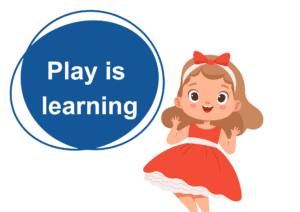 Play is the way children make sense of their world and learn! When children are playing, they are not taking a break. Educators use the curriculum, their knowledge of child development, and the needs of the students to thoughtfully choose materials and plan many different learning opportunities and experiences. In Kindergarten, your child will experience opportunities to learn many skills in literacy, mathematics, and social development through play. When children learn through play they are supported by the educator team who will be listening to, observing, and speaking with children to help them develop and apply their growing skills effectively.
Play is the way children make sense of their world and learn! When children are playing, they are not taking a break. Educators use the curriculum, their knowledge of child development, and the needs of the students to thoughtfully choose materials and plan many different learning opportunities and experiences. In Kindergarten, your child will experience opportunities to learn many skills in literacy, mathematics, and social development through play. When children learn through play they are supported by the educator team who will be listening to, observing, and speaking with children to help them develop and apply their growing skills effectively.
As children learn through play, they are:
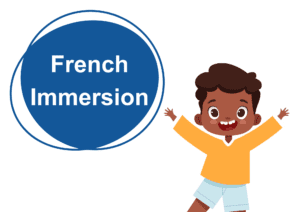
In TLDSB, the French Immersion (FI) program begins in Grade 1.
Families intending to register for FI are welcome to register for Kindergarten at their closest FI school:
While the Kindergarten program is not offered in French, registering at the FI school for Kindergarten will allow your child to acclimatize to their school environment before entering FI in Grade 1. In doing so, the FI school becomes the child’s “home school” when registered in the program and transportation is provided. Although it is rare that families decide to leave the FI program, it occasionally happens. If a child withdraws from the program, the “home school” becomes the catchment area school.
Overview of the program
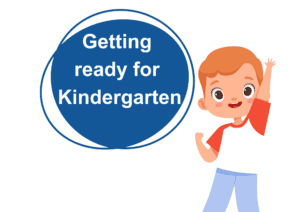 You can help prepare your child for school by:
You can help prepare your child for school by:
Talking with your child
Reading together
Before, during, or after reading ask your child:
Exploring numbers and counting
Playing and writing
Some helpful independent skills to work on at home are:
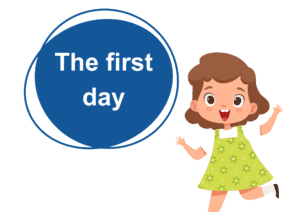 A few days before school begins, start getting your child (and yourself) used to the bedtime and wake-up schedule that school requires. Get everything ready a day or two in advance. Allow your child to choose an outfit they will be comfortable in. Practise walking to the school or bus stop. One day, before school starts, pack a lunch in your child’s lunch box. Let them practise eating lunch from it.
A few days before school begins, start getting your child (and yourself) used to the bedtime and wake-up schedule that school requires. Get everything ready a day or two in advance. Allow your child to choose an outfit they will be comfortable in. Practise walking to the school or bus stop. One day, before school starts, pack a lunch in your child’s lunch box. Let them practise eating lunch from it.
Use the first day to start routines that will make the whole school year great. Talk to your child every day about what happened at school, ask questions such as:
Look in your child’s backpack for their work (another thing to talk about) and school communication.
You may wish to speak with the educators and your child about ways they can choose a quiet activity in the classroom (e.g. reading, listening, or puzzle centre) when their energy gets low. If you have any concerns, you can problem-solve with the educators to support your child.
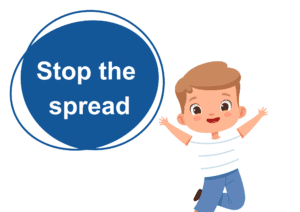 Here are some tips to keep our kids healthy:
Here are some tips to keep our kids healthy:
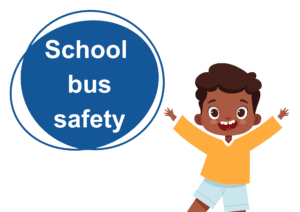 The following tips will help to ensure that your child arrives to and from school safely each day. With your help, we can make our roads and communities a safer place for our kids.
The following tips will help to ensure that your child arrives to and from school safely each day. With your help, we can make our roads and communities a safer place for our kids.
Registration for new Kindergarten students typically takes place at the beginning of January, but parents/guardians are welcome to register their children at any time of the year.
Please register your child online. You will then be contacted directly by your child’s school to complete the registration process.
For those who do not have access to internet, please contact your child’s school directly to register your child.
If you do not know which school you should attend please visit mybustoschool.ca and enter your address.
School phone numbers may be found in the Schools Directory.
To register your child in Kindergarten, please have the following items ready:
The Kindergarten Program is organized into 4 frames:
Belonging and Contributing: which encourages children to build positive self image and to see themselves and others as valuable members of a learning community. This frame helps students learn to add their ideas to the group and accept the ideas of others.
Self-regulation and Well-Being: which supports children in becoming attuned to their own feelings, thinking, and physical and mental wellness as well as those of their peers. This frame helps children build strategies to support them in getting ready to learn.
Problem solving and Innovating: which fosters children’s curiosity and encourages them to question, investigate, create, and test theories as they look closely at the world around them. This frame supports development of these skills in social situations as well as in creative and scientific explorations.
Demonstrating Literacy and Mathematical Behaviours: which provides opportunities for children to explore how letters, sounds, numbers, and other math and literacy concepts work to help them communicate and describe things they experience. This frame supports students in seeing themselves as young readers, writers, communicators and mathematicians.
All of the expectations in the Kindergarten Program are woven through these frames offering your child exciting ways to learn and practice new skills both socially and academically. Your child’s progress and growth in learning will be communicated to you through these frames.
For the most part, play is your child’s homework! But in some instances, and with your support, educators may send home fun activities or games that provide practice or reinforcement of newly learned skills. Watch your child at play; your observations will give you insight into how they prefer to learn. All play – in fact, anything your child is doing – can be a learning experience. Here are some ideas to help you make the most of these opportunities:
Your child’s educators will be continuously assessing your child’s progress and will keep you informed. The most important method is through observation – watching and talking with your child. Your child’s educators will use many strategies to assess your child’s learning such as small tasks, assignments and activities. Each strategy gives the educators another part of the picture about how and what your child is learning.
Each child develops in their own way. Young children go through many stages as they grow and learn. One of the things your child’s educators will be considering as part of the assessment is your child’s stage of development. That’s important information to help the educators plan a learning program suited to your child’s needs.
The Ontario Kindergarten Program consists of overall and specific expectations and key understandings that children should develop over two years. These learning expectations represent the first steps in a continuum of programming from Kindergarten to Grade 8.
More information is available at the Ministry of Education website.
The main learning and assessment of your child’s French language skills will happen at school with their teacher. It is not expected that you support French learning directly. In the early grades, students will not have a lot of homework. In those years, celebrating their language skills by listening to them read is a great way to encourage your child in their French language learning. Another great way to support your child is to give them opportunities to listen to French in fun and authentic ways (games, shows/movies – see sites below). As homework time and projects increase over the years, students will be working at their language ability level. Parents can support routines, work habits and maintain communication with the teacher(s).
Please see the two following websites: Radio Canada Jeunesse and TFO.
If you require this information in an accessible format, contact Communications Services at [email protected].
300 County Road 36, Lindsay, ON K9V 4R4
1271 Cedar Lane, Bracebridge, ON P1L 1N4
Reviews
School year calendar
School registration
Jump to a school site
Transportation info
Lindsay Education Centre
300 County Road 36, Lindsay, Ontario K9V 4R4
Muskoka Education Centre
1271 Cedar Lane, Bracebridge, Ontario P1L 1N4
Phone: 1-888-526-5552
Email: [email protected]
All school buildings will be closed to the public for the summer break beginning Monday, July 7, reopening on Tuesday, August 26.
Beginning the week of July 14, the TLDSB Lindsay Education Centres is open to the public Monday to Thursday, 8:30 a.m. to 4 p.m. The Muskoka Education Centre is closed to the public over the break.
The first day of school for both elementary and secondary students is Wednesday, September 3. Note, Kindergarten students will have a staggered start.
See more detail on the summer break 2025 information news post about available services over the summer break.